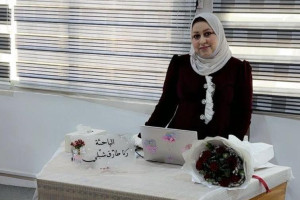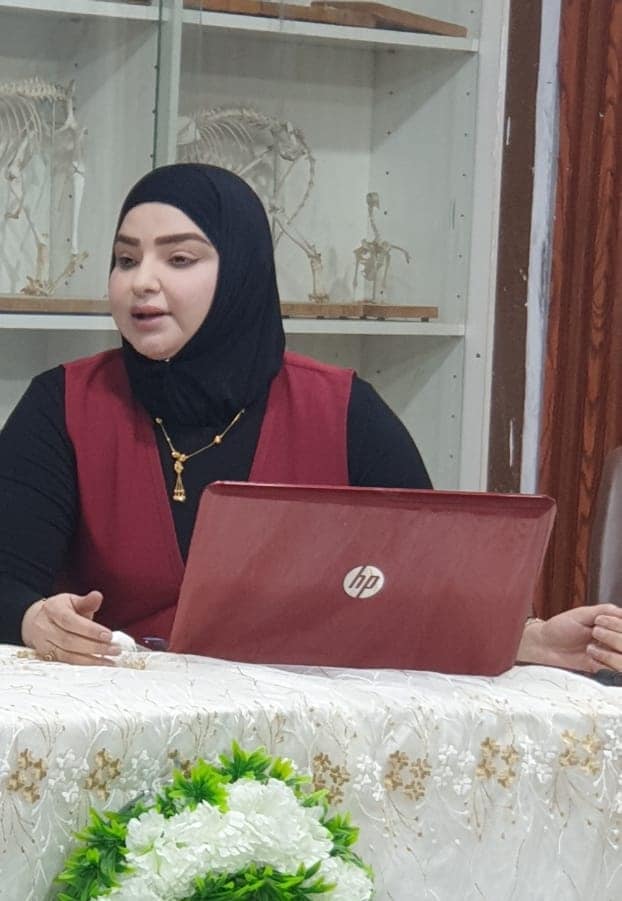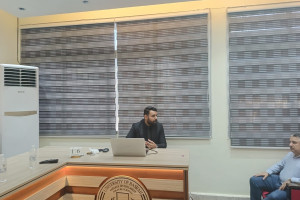
In the name of God, the most gracious, the most merciful
(The month of Ramadan in which was revealed the Qur’an, a guidance for the people and clear proofs of guidance and criterion.)
The College of Education for Pure Sciences in the Department of Life Sciences held an interactive symposium on the holy month entitled (The obligation of fasting and bodily health) that included the following topics
The first section is Dr. Mona Khudair Marzouk
The rulings on fasting, which began with reading Qur’anic verses and the noble Prophetic hadiths that clarified the rulings on fasting and the meaning of fasting in language and the wisdom behind God Almighty’s imposition of fasting on worship and the types of obligatory and desirable fasting and those that break the fast.
The second axis, Dr. Asmaa Abdel Zahra Saba
Fasting and the general health of those who are fasting, which explained the most important positive physiological and immunological changes that the fasting person enjoys, such as improving heart and brain health.
The third axis, Dr. Inaam Mahdi Ghadhban
The impact of fasting on people with chronic diseases, including diabetes and fasting. Is fasting dangerous for diabetics, controlling high blood pressure during fasting times, and how do heart patients fast safely during Ramadan?
The fourth axis, Dr. Amal Saleh Abdel Reda
Comparison between fasting in the true Islamic religion and fasting among the peoples of the world, which is represented by intermittent fasting, which is recommended by all nutrition experts due to its resulting improvement in public health and the maintenance of physiological activities in the body. The average hours of intermittent fasting are similar to the times of fasting between suhoor and breakfast.









